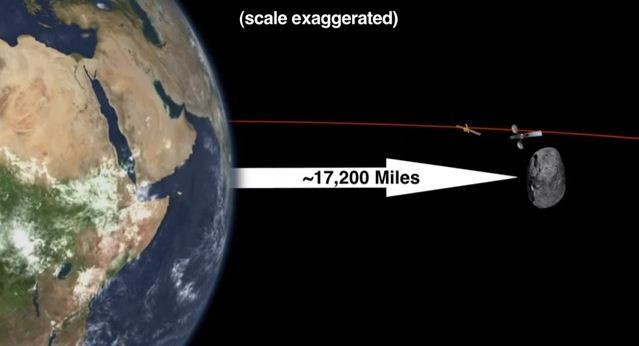Earth Faces Close Encounter with 50-Metre Asteroid

A 50-metre asteroid will pass closer to the Earth than any comparably sized object for 15 years, according to scientists at Nasa.
In the closest near-miss in years, the asteroid - known as 2012 DA 14 - is forecast to pass Earth at a distance of 17,000 miles at 7.26pm on 15 February, travelling through the sky at approximately eight miles per second.
Asteroids the size of DA14 strike Earth roughly once every 1,200 years, said Nasa astronomer Donald Yeomans.
"For objects this size, this is the closest predicted encounter we're aware of," said Yeomans, adding: "No Earth impact is possible."
DA14 was discovered last year by amateur astronomers in Spain. Had it been set on a collision course with Earth, it would strike the planet with the force of around 2.4million tonnes of dynamite, scientists estimated.
Nasa's early warning system tracks all near-Earth objects sized above 1km in diameter.
"Basketball-size objects come in daily," said Yeomans. "Volkswagen-sized objects come in every couple of weeks. As you get to larger and larger sizes, the number of objects out there is less and less, so the frequency of hits goes down."
Lindley Johnson, head of the Near-Earth Object Observations Programme at Nasa headquarters in Washington DC, added: "Although they woudn't cause a global catastrophe if they impact the Earth, they still do a lot of regional destruction."
The planet's last direct hit occurred in 1908, when a comet exploded over Siberia, destroying 80 million trees over 830 square miles.
About 60 million years ago, a six-mile-wide asteroid smashed into the Yucatán peninsular in Mexico, killing most of the planet's plant and animal life, including the then dominant dinosaurs.
© Copyright IBTimes 2025. All rights reserved.





















